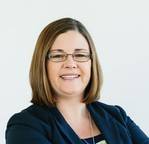- Solutions
- Solutions
- Home Health
- Hospice
- Life Plan Community
- Palliative Care
- Private Duty
- Senior Living
- Skilled Nursing
- Skilled Nursing
- Skilled Nursing Software
- Advanced Insights
- Customer relationship management
- Data and analytics
- Financial & operations management
- Marketing
- Nutrition management
- Referral management
- Regulatory compliance
- Retail management
- Resident engagement
- Revenue cycle management
- Skilled nursing interoperability
- Partners
- Blogs
- Resources
- About
- User Conference

What is a remote MDS coordinator, and how can it help your organization?
As providers continue to struggle with workforce issues, meeting the requirement of employing a full-time MDS coordinator has become a serious challenge. At the same time, tightening financial margins have made effective MDS reporting more important than ever before. Fortunately, a new option for remote MDS coordination is offering an efficient way to meet these urgent needs.
Why every facility needs a dedicated and experienced MDS coordinator
Why is minimum data set (MDS) reporting such an important job? For starters, having a dedicated MDS coordinator on staff is a requirement for every certified Medicare or Medicaid nursing facility. That means having someone who can “complete, record, encode and transmit” MDS data at each admission, and again when there’s a change in condition, or after a certain amount of time has passed. And that applies to all residents, “regardless of age, diagnosis, length of stay or payment category.”
Perhaps even more importantly, MDS documentation drives accuracy in billing and reimbursement. If each change isn’t captured correctly, organizations could be leaving money on the table — not to mention exposing themselves to CMS-imposed penalties. Both of these outcomes can have a significant financial impact at a time when many organizations can scarcely afford it.
But if MDS coordination is an important job, it’s also a demanding one, requiring special certification — meaning it can’t simply be delegated to any staff member with free time. On the contrary, a dedicated MDS coordinator must be trained in accurately understanding what needs to be coded in each health record. They should also know how to interpret notes and other kinds of unstructured information, too.
After all, these are large, complex assessments, amounting to pages and pages of highly detailed data. And even when much of that data is imported from a facility’s EHR, it still takes a skilled eye to double-check it and ensure its accuracy, especially since changes to one section will directly affect others. That makes MDS coordination a job that requires complete focus — something that may be hard to achieve in a busy facility that’s struggling to stay fully staffed.
3 challenges in maintaining a MDS coordinator
Most leaders understand the importance of having a dedicated MDS coordinator, but still have difficulty maintaining the role for a number of reasons.
#1: Lack of skilled personnel
Providers often cite a lack of skills among their personnel — even those who are certified. Some of this stems from inexperience; more than half of MDS coordinators have been in their position for fewer than two years. And this challenge is only exacerbated with the added complexity of PDPM requirements.
#2: Shortage of qualified staff
Maintaining an effective MDS coordinator is made even more difficult by the general shortage of staff. Tenure for these positions is very low. And high turnover leads to others having to perform this duty on an ad hoc basis. Because these fill-ins rarely have the necessary skill or knowledge, the result is often compromises in data accuracy, and a negative impact on reimbursement.
#3: Difficulty in employing a full-time MDS coordinator
Even facilities that do have an experienced and effective MDS coordinator are rarely able to let them focus completely on that task. For instance, they might be out on the floor providing care and not really focused on MDS in that moment. That’s not their fault, yet the result is the same — a compromise in MDS reporting that, as we’ve seen, can have a direct impact on an organization’s bottom line.
True, large organizations may have the resources to employ several such experts at a given time, making all this less of a concern. But for small or medium-size providers, these are legitimate challenges — and they’re only intensifying in the face of ongoing labor issues.
A new solution to the challenge of dedicated MDS coordination
One emerging solution to these challenges is remote MDS coordination as a service. This gives providers who lose their MDS coordinator, or who have challenges filling or maintaining that role, access to a high-quality replacement to help ensure they’re not losing revenue or running afoul of CMS requirements.
The idea is to leverage technology to provide a skilled MDS coordinator on a remote basis. But even though they’re remote, they’re still fully connected with the team and dedicated to its MDS reporting needs. They’re not just focused on submitting assessments on time, but also making sure facilities receive the full level of reimbursement they’ve earned, as well as working to improve the process in general.
For some organizations, such a service can deliver an immediate and positive impact by shoring up accuracy of MDS reporting in the short term. This helps ensure proper reimbursement, as well as helping to avoid harmful CMS penalties. It can also free up staff for other tasks that may be needed more immediately — for instance, taking care of residents.
Even for facilities with no foreseeable staff turnover or challenges, a remote coordinator is a smart way to ensure continuous MDS coordination as an insurance policy. And it could be especially valuable to smaller facilities where MDS coordination is the responsibility of a nurse who also has other tasks and concerns.
After all, the priority of any facility is providing care. But providers that aren’t being fully reimbursed for that care may be putting their entire organization at a disadvantage, and potentially at risk of failure. For these facilities, access to a remote MDS coordinator — even if only for a limited time, while they seek a permanent hire — could make all the difference in their long-term success.
Seize the benefits of remote MDS coordination with MatrixCare
Here at MatrixCare, we understand the importance of MDS coordination, and the challenges that go with it. To help make sure our partners are covered, we’ve teamed up with Polaris Group to offer high-quality remote MDS coordination as a service.
Even if your facility has MDS covered today, this service could serve as a valuable backup plan in the event of future contingencies. It’s all part of our mission to provide the nation’s skilled nursing facilities with the tools and technology they need to succeed in an increasingly challenging market.
Request a demo today to learn more about remote MDS coordination, and other solutions from MatrixCare.
See what MatrixCare can do for you
Lee Kilmer
Lee Kilmer serves as the Vice President, Product Management at MatrixCare. Lee started at MatrixCare in June of 2016 and has over 24 years of experience leading global software development and product management teams with a proven track record for setting product strategy and delivering new innovative software solutions to market. Lee currently resides in the Greater Minneapolis-St. Paul Area.
Related Posts



See MatrixCare in action
Start by having a call with one of our experts to see our platform in action.
MatrixCare offers industry-leading software solutions. Thousands of facility-based and home-based care organizations trust us to help them improve efficiency and provide exceptional care.





